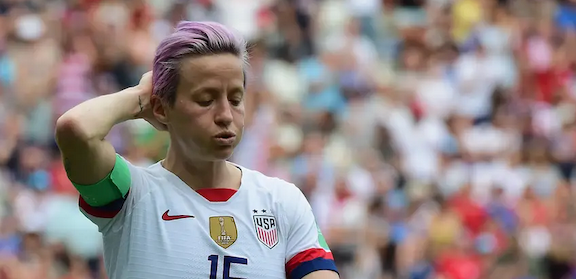Over a year ago, U.S. women’s soccer team players Alex Morgan, Megan Rapinoe, Carli Lloyd, and 25 other members of their team initiated and filed a class action lawsuit against the United States Soccer Federation Inc., alleging that the national soccer federation paid women less than members of the men’s national soccer team and subjected them to less favorable working conditions in violation of the Equal Pay Act and Title VII. Recent developments in the case have once again garnered the attention of the national media.
The Equal Pay Act (EPA) was adopted as part of the Fair Labor Standards Act in 1963. The EPA prohibits an employer from discriminating on the basis of sex by paying employees of one sex at a rate less than that paid to employees of the other sex when both are doing equal work. Further, the EPA requires employers to pay male and female employees the same for jobs that are equal in skill, effort, and responsibility when those jobs are performed under similar working conditions.
Congress’ purpose in enacting the EPA was to remedy what was perceived to be a serious and endemic problem of employment discrimination in private industry: that the wage structure of “many segments of American industry has been based on an ancient but outmoded belief that a man, because of his role in society, should be paid more than a woman even though his duties are the same.” Corning Glass Works v. Brennan, 417 U.S. 188, 195 (1974). The solution adopted was to require that equal work be awarded by equal wages. This solution insured employees a minimum standard of living by providing fair guidelines to govern the wages set by employers covered under the EPA.
The women soccer players’ suit alleges that the U.S. Soccer Federation discriminates against women by paying them less than members of the men’s national team “for substantially equal work and by denying them at least equal playing, training, and travel conditions; equal promotion of their games; equal support and development for their games; and other terms and conditions of employment equal to the [men’s national team].” The U.S. women’s soccer team is currently the top ranked team in the world and has successfully held this position for 10 of the past 11 years.
The United States Soccer Federation’s opposition to a motion for summary judgment by the women’s lawyers argued that the women’s claims should fail because the women’s work is not equal to the work of the men’s team. The federation argued that players on the women’s national team deserved to be paid less than players on the men’s team because their ability and skill were not on the same par as their male counterparts, which could be demonstrated if they competed against each other on the field. Specifically, the brief stated, “The job of [a male national team] player requires materially different skill and more responsibility than [the women’s] job does, while also taking place under materially different working conditions.” The court filing goes on to express that “they are materially different jobs that cannot be compared under the EPA.”
In response to its opposition to the motion for summary judgment, the Federation received intense backlash from players, executives, sponsors, and fans. Sponsors such as Coca-Cola, Visa, and Budweiser denounced the federation’s assertions that female players are not equal to their male counterparts. The backlash ultimately culminated in the resignation of Carlos Cordeiro, the president of the U.S. Soccer Federation, on Thursday, March 12, 2020.
Despite this backlash, on Friday, May 1, 2020, the Central District of California granted partial summary judgment in favor of the U.S. Soccer Federation, rejecting the plaintiffs’ argument that the Federation systemically underpaid the women in relation to the players on the men’s national team. While this is seen as a blow to the women’s lawsuit, the players can, and have vowed to, appeal to the Ninth Circuit.
Regardless of the ultimate outcome of their appeal, the actions taken by this strong group of women hopefully will send a message to the powers that be that our society is changing, and such deliberate discrimination will not continue unchecked. And perhaps more importantly, they also communicate to the next generation of great female athletes that their skills and talents are of equal worth and importance as their male counterparts and, thus, deserving of equal compensation.
The attorneys of Mackaness & Ideta, LLP have a wide-range of experience representing employees who have been discriminated against on the basis of their sex. Please contact us today for a free and confidential consultation.



